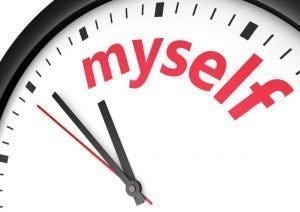Have you ever felt out of sync with the universe?
It’s the sense that something, or everything, isn’t quite right. You might feel edgy, or depressed, or unclear about yourself and the future. And no matter how hard you try or how many times you tell yourself everything will work out okay, you can’t get back in step with the real life you know you were meant to live.
For many, these feelings of uncertainty are the result of a struggle of identity — between who you really are, and trying to measure up to what others expect from you.
This kind of internal conflict is not uncommon, especially when family members, work associates, and unhealthy career obligations are pushing us one way, and all we can think about is how we want to move in the opposite direction.
If you’re experiencing bouts of anxiety, doubt, or indecision, it could be a signal you’re forcing your true self — and the things most important to you — into the background in deference to the influence of others.
It’s very possible those feelings of frustration are your instincts trying to warn you. But by ignoring them — by telling yourself the needs and agendas of others are a higher priority — you’ve set yourself up for constant conflict . . . with yourself.
If any of this hits a nerve, here are 4 tips to help you find new life-balance by re-prioritizing your personal life goals and focusing on the people, places, and experiences that bring you happiness.

1. Set aside some time to evaluate your feelings and determine the source of your discontent.
Many of our decisions and activities are the result of habit, and if those habits no longer serve you, it’s time for a change.
2. Center your thoughts and energy.
Try deep breathing, meditation, or take a walk in nature — by yourself — to clear your mind of intrusive thoughts and unwanted obligations placed on you by others. Identifying and setting them aside for just an hour will give you the opportunity to think clearly about your own purpose and life objectives.
3. If you’re having trouble identifying the problem, try describing it on paper.
Taking the extra step to write it down can often produce greater clarity. Be honest and truthful and don’t make excuses for yourself or others. Redirecting responsibility for your actions — “I have to do it because they’re counting on me” or “Who else will take care of this if I don’t?” — may be the reason you’re feeling the way you do.
4. Determine an alternative to the situation creating the conflict.
Then set up a schedule to implement it a step at a time.
Do you need to change careers? How about cutting back on time you spend with negative people — or eliminating them altogether from your life?
The change may seem overwhelming, but in most cases, the challenge isn’t in taking the necessary action, it’s anticipating and dealing with feedback from others who believe their relationship with you — personally or professionally — makes them entitled.
Your plan can also include suggestions to make others more responsible and accountable for their actions–without having to rely on you.
We often refer to it as being in sync or in alignment with our true nature. And it’s only possible when we listen to the direction we receive from our own voice. Don’t give up on your personal dreams and aspirations because of the expectations of others.
And if you need to rationalize your decisions, simply repeat guitarist/composer Tom King’s famous words, “Time Won’t Let Me.”

